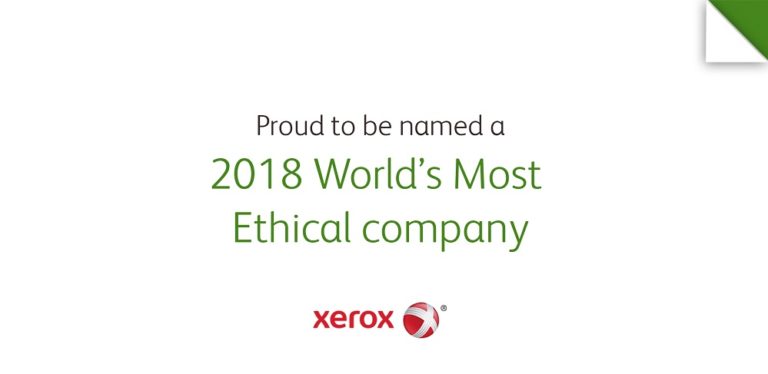By Christa Carone, Chief Marketing Officer, Xerox
This post originally appeared on the Forbes CMO Network.
As an active Twitter user and scanner, I’m constantly prowling for Tweet-worthy articles and insights to share with my followers. But, like every multi-tasker, over-committed, “not-enough-time-in-the-day” person I know, there are always competing demands for time that keep me from heeding the call of the little blue bird.
Thank goodness for Percolate, a small but fast-growing company that recognizes that marketing on the “social scale” requires content, content and more content, but only if it passes the relevancy test. Through algorithms, filters and other tools, Percolate scours the web and serves up content tailored to my specific areas of focus that I can review and easily share.
I’m grateful for and a tiny bit envious of this start-up. I marvel at how its founders quickly spotted a need and last year created a company that has scored a slew of clients and, in November, $9 million in funding. Besides that, everything this company does is on-brand, from its business cards and its Daily Brew email to the—yes–perkiness of its staffers.
One of my resolutions for 2013 is to spend more time learning from small companies like Percolate. Big organizations can be great marketers but often find it hard to act fast. Frankly, “seize” isn’t something that is easily said or done. But there are lessons that Goliaths like Xerox can learn from more nimble David-sized enterprises.
Lately I’m a sponge when I come across a small company that is making me a big fan of their brand. Here’s what I’m seeing and what I’m learning:
Identify an everyday unmet need. The world is changing quickly. Your company may not create the next hot social media offering. But there are problems to be solved all around us. And, there are new markets just waiting to be created. At Xerox we take inspiration from our founder, Chester Carlson, a patent attorney but day, an inventor by night. Frustrated with the painstaking process of hand-writing patent applications over and over and over again, he took to his makeshift lab to find a simpler way – and the plain paper copier was born. Chester didn’t necessarily intend to revolutionize the way offices work, but his impatience with the status quo led to an invention that simplified the sharing of information, over and over again – and gave birth to a storied brand.
What is your company’s next “chip clip” or “salad in a bag”? What is a product or service your customers can’t do without—but don’t yet have?
Everyone needs a chore genie (especially those of us with kids, a working spouse and a hope for a sliver of ‘me’ time). That’s why I think Task Rabbit’s offering is genius. In nine metro-area markets, the company helps people with undone tasks and errands— from housecleaning and pet sitting to IKEA furniture assembly—get the help they need.
The company shares some of its tall tasks, such as standing in line for a week to buy the first iPhone 5 in San Francisco, on Twitter. I have an idea or two about what a service like this could do to help me survive the Christmas shopping season. It starts with the holiday lights on my house, finding the perfect gift for my 13 year old son and maybe even wading through the offerings at the American Girl store in Manhattan (because my daughter apparently cannot survive another day without the AG balance beam. Such brilliant marketing; but that’s a blog post for another day!).
Go low budget. Pabst Brewing Company knew there was no point in trying to match Anheuser-Busch for Super Bowl. So it snuck under the radar with a spot for its Old Milwaukee lager earlier this year. The commercial, with comedian Will Ferrell, aired on TV in Nebraska only. It was perfectly amateurish—like something created by 2nd graders–ending before Farrell even makes a pitch.
Bloomberg Businessweek reported that Old Milwaukee’s ad generated more tweets and YouTube hits than Budweiser’s game spot. It cost Pabst about $1,500 in broadcasting fees to a tiny NBC affiliate (30 seconds for a nationally broadcast Super Bowl ad cost more than $3 million).
At Xerox, we may never run a spot like this but I applaud the marketing chief who gave this one the nod. And I hope ads like this will encourage our team to take some calculated but unexpected risks.
Create an event that excites and informs. At a time when so many interactions and connections happen online, real-world gatherings can be especially powerful for a brand. Big companies have the resources to create large-scale polished events that attract customers and engage employees. We know how to put on some major bashes at Xerox. But there is power in more grass-roots initiatives too.
Everyone knows about TED and The Aspen Ideas Festival, but few people really get to attend or speak at those events. Inspired by them, BFG Communications, an ad agency in Bluffton, S.C., hosts Geekend, a three-day annual gathering in Savannah where designers, developers and social media movers and shakers gather to spark new ideas in creativity and technology. Its November event, way below-the-radar compared to those big-name conferences, attracted 600 geeks and made BFG seem pretty cool—a win for an agency. Attendees were encouraged to innovate, take risks and start new ventures by speakers that included Charles Adler, cofounder of Kickstarter.
Who knows? Perhaps the founder of the next Percolate or Task Rabbit was in attendance. If so, I hope their creations will inspire big companies to “think small.”
Curious marketer and communicator on the hunt for cut through creative… Road warrior and marathon runner, follow me on Twitter @ChristaCarone


